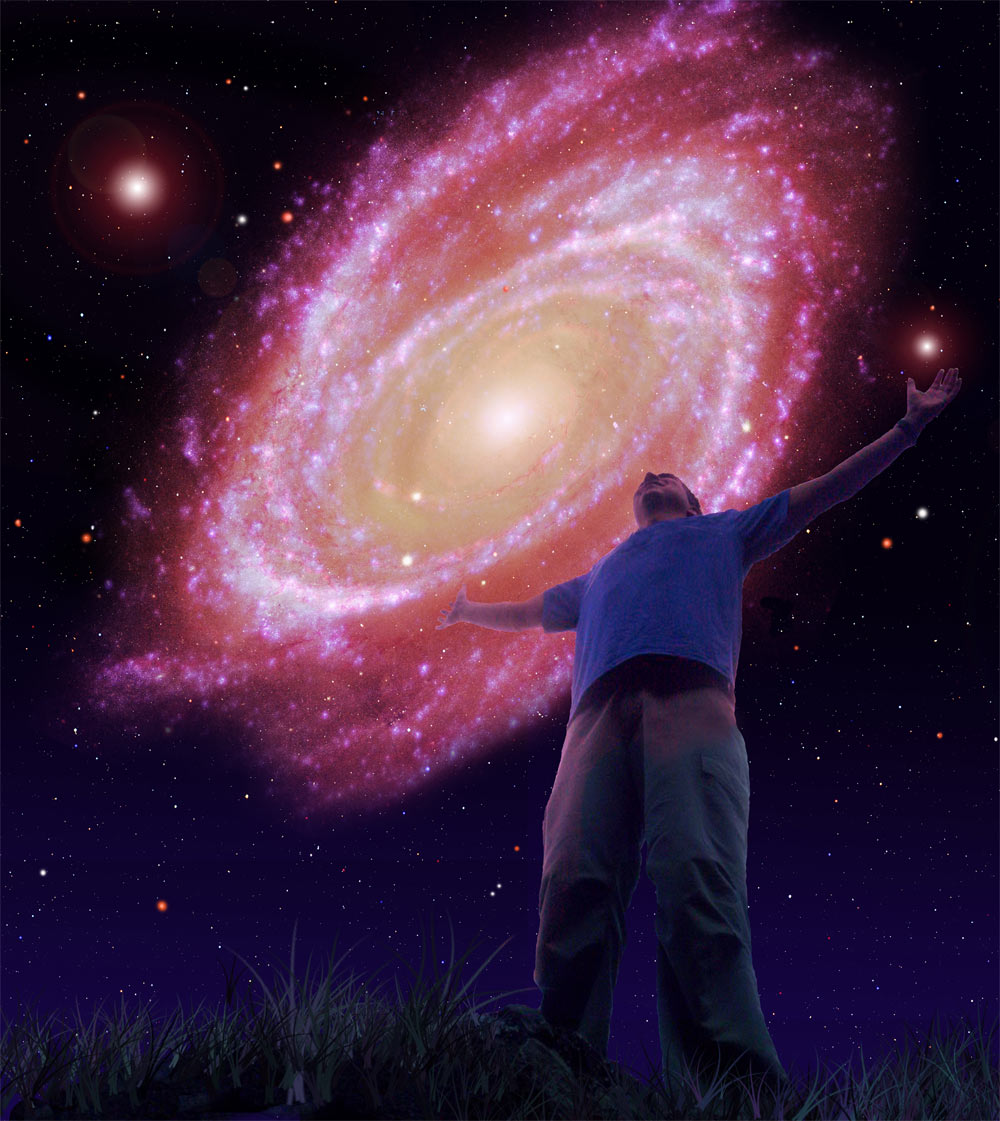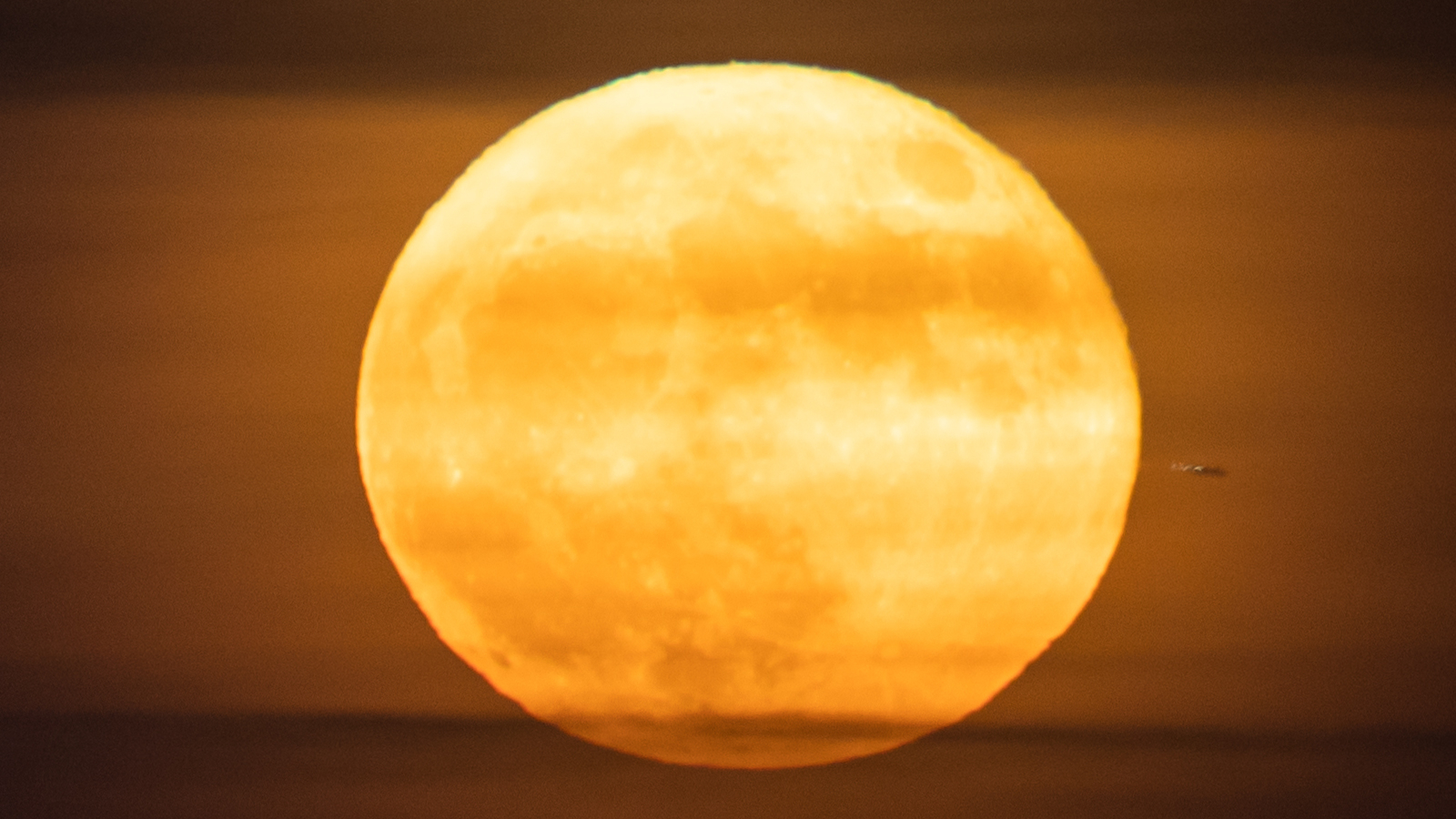NASA to Reveal Hubble Discovery of Milky Way's Violent Fate Today

NASA will reveal new discoveries about the violent fate of our Milky Way galaxy today (May 31), the space agency has announced.
NASA will hold a press conference at 1 p.m. EDT (1700 GMT) Thursday at the agency's headquarters in Washington, D.C. Scientists will discuss new Hubble Space Telescope findings about the inevitable crash of the Milky Way and Andromeda galaxies, which will occur billions of years from now.
"Because of uncertainties in Andromeda's motion, it has not been possible to determine whether the Milky Way will have a head-on collision or glancing blow with the neighboring galaxy billions of years in the future," NASA officials said in a media alert Friday (May 25). "Hubble's precise observations will settle this question."
Several Hubble telescope program scientists and astronomers will participate in Thursday's briefing. They include:
· Roeland van der Marel, astronomer, Space Telescope Science Institute, Baltimore
· Sangmo Tony Sohn, astronomer, Space Telescope Science Institute, Baltimore
· Rosemary Wyse, professor, Physics and Astronomy, Johns Hopkins University, Baltimore
· John Grunsfeld, Associate Administrator, Science Mission Directorate, NASA Headquarters, Washington
Get the Space.com Newsletter
Breaking space news, the latest updates on rocket launches, skywatching events and more!
The briefing will air live on NASA TV, which is available here: http://www.nasa.gov/ntv
After the press conference, the panelists will also host a web chat at 3 p.m. EDT (1900 GMT) to answer questions from the public. You can participate in the web chat by visiting this web site: http://www.nasa.gov/connect/chat/M31_collision_chat.html
The Hubble Space Telescope, a joint effort between NASA and the European Space Agency, launched in April 1990 aboard the space shuttle Discovery. In the 22 years since, Hubble has revolutionized the way humanity views the cosmos.
The telescope's observations revealed, for instance, that the universe is expanding faster than anyone had realized. This finding helped lead astronomers to the probable chief cause of this accelerated expansion — the mysterious "dark energy" that makes up most of our universe.
The telescope has been repaired five times over its long life, but it's expected to keep going strong until at least 2014.
Follow SPACE.com for the latest in space science and exploration news on Twitter @Spacedotcom and on Facebook.
Join our Space Forums to keep talking space on the latest missions, night sky and more! And if you have a news tip, correction or comment, let us know at: community@space.com.

Space.com is the premier source of space exploration, innovation and astronomy news, chronicling (and celebrating) humanity's ongoing expansion across the final frontier. Originally founded in 1999, Space.com is, and always has been, the passion of writers and editors who are space fans and also trained journalists. Our current news team consists of Editor-in-Chief Tariq Malik; Editor Hanneke Weitering, Senior Space Writer Mike Wall; Senior Writer Meghan Bartels; Senior Writer Chelsea Gohd, Senior Writer Tereza Pultarova and Staff Writer Alexander Cox, focusing on e-commerce. Senior Producer Steve Spaleta oversees our space videos, with Diana Whitcroft as our Social Media Editor.
